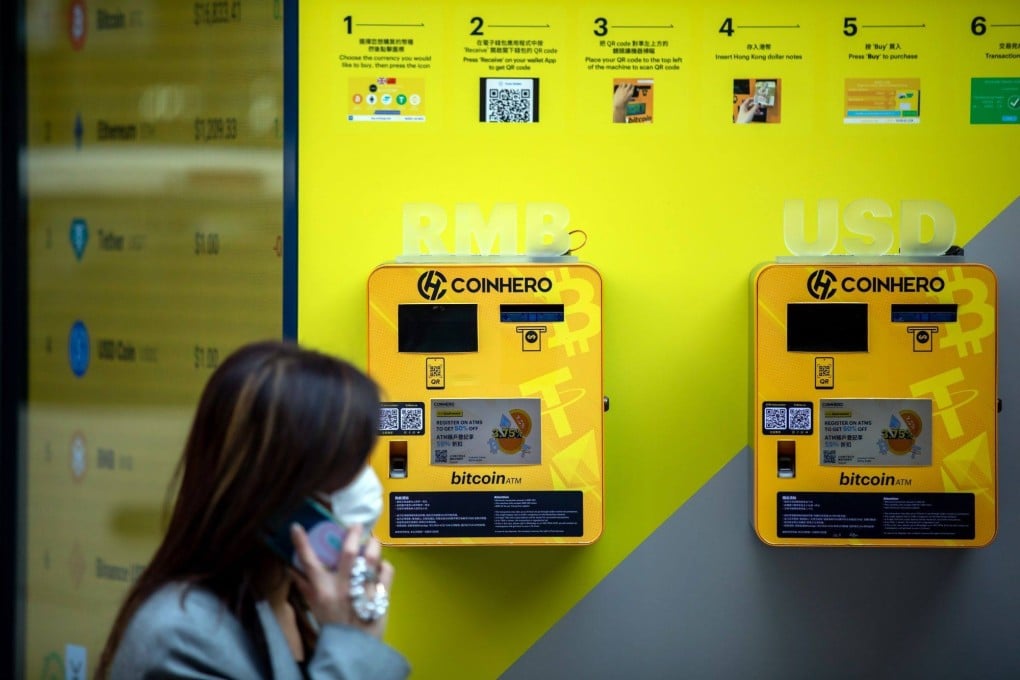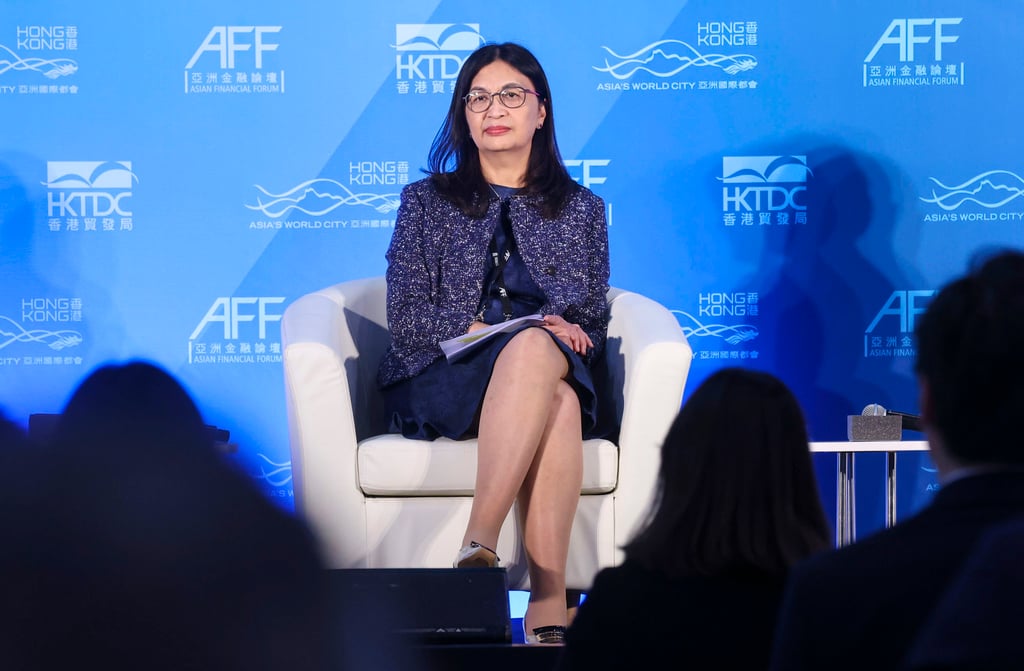Virtual assets: Hong Kong retail investors will only have access to ‘highly liquid’ products, SFC’s new boss Julia Leung says
- A consultation paper on virtual assets will be issued in this quarter and new licensing rules for virtual assets platforms will come into effect in June, Julia Leung said
- The SFC will also work with the Hong Kong stock exchange on another consultation to allow listed companies to disclose climate risks

“Some virtual assets platforms have over 2,000 products, but we do not plan to allow retail investors to trade in all of them,” Leung, who took charge on January 1, said in her first media briefing. “We will set the criteria that would allow retail investors to [only] trade in major virtual assets.”
Leung did not identify these virtual assets or provide any examples, but said only those with “deep liquidity” will be on the list. When asked if cryptocurrencies like bitcoin or ethereum could be included in the initial list of virtual assets by the regulator, she said only “highly liquid” assets will be allowed for retail trading.

Hong Kong’s Legislative Council last month passed the amended Anti-Money Laundering and Counter-Terrorist Financing Act, imposing new licensing rules on virtual asset service providers from June this year under the purview of the SFC. These platforms have to apply for a licence from the SFC to operate or they will be shut down within nine months after the law comes into effect.